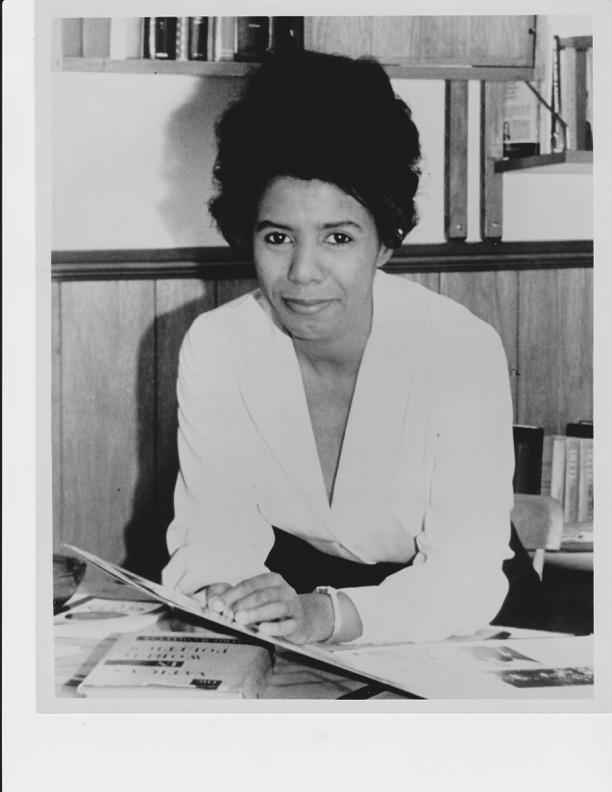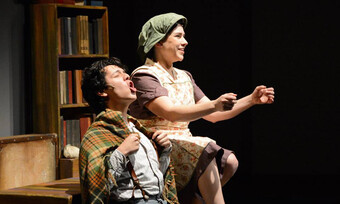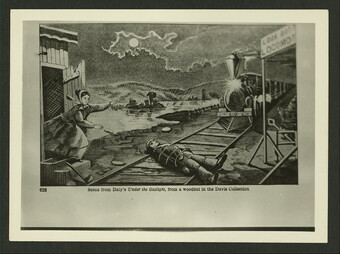Lorraine Hansberry
Artist, Public Intellectual, Activist, Writer
The past three days of #IdentityWeek have been spent discussing identity in the theatre. The challenges, the opportunities, the education, the fight for inclusion. Tonight (9/30/16), we pause to celebrate the work that our industry has already accomplished. A Celebration of Pioneering Artists will serve as a retrospective of artists who have achieved ground-breaking work in the theatre. For today's article, we asked Julie McGarvie of the Lorraine Hansberry Literary Trust to pen a piece about Lorraine who, as Julie puts it, was “a playwright and activist well ahead of her time.” Read below to learn more about Lorraine, the impact of her work, and why 2016 is a particularly remarkable year for her legacy. —Courtney Kochuba, #Identity Week curator, Samuel French
What I write is not based on the assumption of idyllic possibilities or innocent assessments of the true nature of life—but, rather, my own personal view that, posing one against the other, I think that the human race does command its own destiny and that destiny can eventually embrace the stars… —Lorraine Hansberry
Lorraine Hansberry was from the future. She had an incredible political, cultural, social, and historical understanding that allowed her to conceptualize events, or more importantly, to speak of them in her plays. In A Raisin in the Sun, she’s talking about the Civil Rights movement. In Les Blancs, she’s talking about the liberation of African nations and the anti-colonial movements. With The Sign in Sidney Brustein’s Window, she talks about the second-wave of feminism and the LBGTQ movement. She saw what we were about to enter into. She had an extraordinary understanding of the cycles of social movements. What does it mean to be fully engaged in the world? Are you going to stand on the sidelines and critique it? Are you going to abstract it and be of no use in your abstractions, or are you going to be engaged and be part of the solution? Lorraine Hansberry devoted her short life to champion the voices of the oppressed and advance social justice world-wide. Today it is fifty-one years since her death, and Lorraine Hansberry is still challenging us with these questions, inspiring us to continue to make positive social change.
A radical within her time, Hansberry saw a world in need of change and the potential of human beings to make that change happen.
This year, 2016, is particularly remarkable because for the first time, all three of Hansberry’s major theatrical works, A Raisin in the Sun, The Sign in Sidney Brustein’s Window, and Les Blancs, were simultaneously produced at prominent theatres across the globe. In Johannesburg, South Africa, the Market Theatre opened its fortieth anniversary season with A Raisin in the Sun. This was the first time a Black American playwright was produced at a professional theatre in South Africa. The season also marked the fortieth year since the Soweto uprising and the fall of apartheid. While A Raisin in the Sun was on stage in South Africa, the play toured in Sweden and Finland. It was the first translation of Hansberry’s work into Swedish, and it was the first professional all-Black cast to perform in both countries. The show played in thirty-seven cities to standing ovations at the end of every performance. Simultaneously, The Sign in Sidney Brustein’s Window ran at the Goodman Theatre in Chicago to rave reviews. And in London, Les Blancs had critical acclaim at the National Theatre. Hansberry’s work continues to garner international attention in the 2016-17 season with prominent productions that include A Raisin in the Sun at Seattle Repertory Theatre in Washington, Arena Stage in Washington DC, and Teatro Nacional La Castellana in Bogotá, Colombia.
With her first Broadway play in 1959, A Raisin in the Sun, Hansberry became the youngest American playwright, the fifth woman, and the first African American to win the New York Drama Critics Circle Award for Best Play of the Year. A Raisin in the Sun forever changed the landscape of American theatre with its truthful portrayal of Black lives on the stage, both in content and artistry. The play paved the way for Black actors and theatre artists, and brought a new Black audience to the theatre. Hansberry’s second play, The Sign in Sidney Brustein’s Window, was her most ambitious play. In many ways, it is the play A Raisin in the Sun couldn’t be.

Joi Gresham, Executive Director of the Lorraine Hansberry Literary Trust, says,
Lorraine was very frustrated with the critical and popular reception of A Raisin in the Sun, and she wrote Sign to be a play that had to be seriously considered. The fact that she was talking about Greenwich Village and white Jewish intellectuals, and a completely different atmosphere, was incredibly challenging to her audience and the critics.
Lorraine was dying when she wrote this play. She was thinking about the end of her life, the things to which she was most committed, and what it meant to be fully engaged in the world. Gresham states, “This play confronts false assumptions about who Lorraine Hansberry was, what she had the right to write about, what she had the right to think about.” In her personal life and professional work, Hansberry was informed by an acute understanding of the interwoven power dynamics of racism, classism, sexism, heterosexism and homophobia. Her writing demonstrates the impact these isms have on cultural, sociopolitical and economic conditions on a global scale. A radical within her time, Hansberry saw a world in need of change and the potential of human beings to make that change happen.
Published in over thirty languages and widely produced throughout the United States and around the world, Lorraine Hansberry is still challenging us today with the question, what does it mean to be fully engaged in the world? Her legacy includes a prolific body of published and unpublished work, and her unflinching confidence as a thinker, writer, artist, and woman. As steward of the legacy for the celebrated playwright, the Lorraine Hansberry Literary Trust (LHLT) is dedicated to promoting the works of Hansberry and ensuring public access to them online, in person at the Schomburg Center for Research in Black Culture, and in print.











Comments
The article is just the start of the conversation—we want to know what you think about this subject, too! HowlRound is a space for knowledge-sharing, and we welcome spirited, thoughtful, and on-topic dialogue. Find our full comments policy here